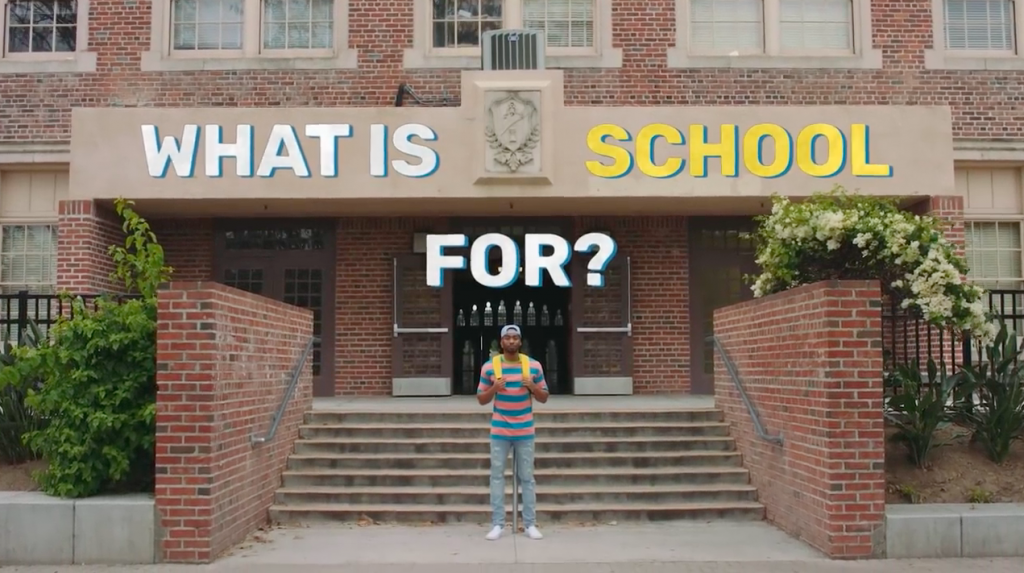This morning I watched a video that directly challenges how schools typically run. The video is called What is School For? by Prince Ea, who blends commentary with hip-hop delivery to explore why we do what we do in education.
 What is School For? by Prince Ea on YouTube
What is School For? by Prince Ea on YouTube
The easy move is to pick at some of the questions posed that we hear all the time. Perhaps surprising to some, these questions have real answers. Here’s an example:
Q. Why do we have to learn algebra and geometry? I’m not going to become a scientist!
A. Even if you don’t work directly with math, science, engineering, accounting, construction, or dozens of other common careers that work with these ideas, these disciplines, when taught well, teach you how to organize your thinking in ways that give you perspectives on possibilities that you and your teams will need in what you do, now and in the future. There is also the possibility that you’re wrong in thinking careers like those above aren’t in your future.
The easy move, though, does no justice to his deeper points in the video:
- We tend not to give students enough avenues for building creative confidence and a sense that they can contribute to the world around them. The vibe at conferences I’ve attended for years suggests he’s right.
- He notes that many kids “avoid eye contact with the teacher out of fear of being called upon.” I suspect you’d have a hard time finding a teacher who disagrees with this.
- Our system is more about grades than building learning and children’s intellects. The extension of this thinking is an “accountability” system infused with a simplistic understanding of what learning truly involves.
- In school, we are controlled by bell schedules. Wouldn’t it be nice to have a school in which a students on a major roll with their learning can keep going rather than stop at predetermined times?
- We often are asked to memorize dots, rather than connecting them. Truly memorable learning comes from making connections – moments when you feel (and perhaps even say) “A-ha!” How often does that happen where you teach?
Clearly, these points do not describe every school, but they certainly describe the experiences of too many students in schools of every description.
“Are you telling me metamorphic and igneous rocks are more important than self-care?” he asks at one point.
Few, if anyone, would argue that’s the case. We certainly should introduce students to those things that might inspire them. But the idea that we don’t spend enough time helping children deal with stress, bullying, and hopelessness seems to me both correct and also worth repeating to anyone who will listen.
In another of his points, he mentions several successful people who either dropped out of school or never attended one.
Yes, there are such people, but that doesn’t recognize that the odds against dropouts living successful lives in our societies are wildly higher than those who stay with the system.
Understanding the comparative odds, though, doesn’t invalidate his key points. Staying too far within the lines may keep us from connecting with creative possibilities that enrich our lives immeasurably.
This video may or may not be a message that leads to major reform, but it will likely lead many to ask major questions about what we do.
I welcome our chance to live up to our profession by engaging in such questions.
![]()
There is still time to enter Next Vista’s Starbucks card drawing for October! Find details in the October newsletter, and while there, please enjoy the ideas and freebies shared.